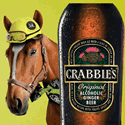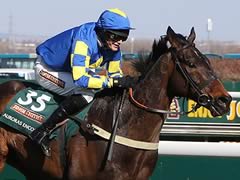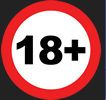Grand National News |
 |
Which Horse to Back as a Grand National Winner |
This year’s Grand National is now less than a month away. Millions of people will be sitting down to watch the race on Saturday 5 April, and some shrewd punters will already have placed a bet on who they think will be the winner this year. But the majority of the people who bet on the Grand National don’t know much about racing and might never bet on any other sporting event throughout the year. It’s something about the coverage of the Grand National on TV and the race’s long history that makes all kinds of people have a flutter.
 |
So how do you choose a winner for this spectacle of a race? There’s no easy way to do it, especially given the fact that it’s such a large field and the course is so long and gruelling. It’s by no means certain that the 40 horses who start the race will even finish it, so even if you’ve spent a while studying the past form of different horses, they could be out of the race before the first circuit is even completed. If what you’re looking for is to gradually make a profit through gambling, then you shouldn’t be betting on the Grand National; you’d be better off learning how to play poker online and working your way through the freerolls and lower stakes games, banking small profits along the way.
But it’s still exciting to have something riding (excuse the pun) on the Grand National. It adds that extra frisson of excitement as you’re watching the race if you’ve got a horse and rider to cheer on. To help narrow down your choice bear the following tips in mind.
A horse’s age is an important factor at the Grand National. Recent winners have ranged in age between 8 and 11 years. Younger horses aren’t always experienced enough to stay the distance of the Grand National course and older horses may lack the stamina required to be first over the finish line. There are exceptions to the rule, of course. Red Rum won at the age of 12 in 1977.
Weight is very relevant when making your choice of horse. The Grand National is handicapped, and although the winning weight has increased in recent years, with the 2010 winner, Don’t Push It, with a weight of 11 stones 5lbs and the 2012 winner, Neptune Collonges, with a weight of 11 stones 6lbs. But if you’re looking to reduce the field when making your choices, it’s often sensible to rule out a few of the top-weighted horses out.
You’ve got to think about which odds are on offer, too. The bookies’ market is generally pretty spot on in terms of pointing out the favourites, but it depends what you’re looking for in your bet. Do you want to back the favourite and stand a chance of taking home a small profit, or do you prefer the idea of a value punt weeks before the race takes place? If you go for the latter option, there’s always the chance that your horse will be withdrawn before the race takes place, but that’s certainly how you’ll get the best value. You can forget any long shots on the day itself as those victories really are rare. Having said that the 2013 winner Auroras Encore was priced at 66/1 on the day, so, as always, those exceptions to the rule can crop up anywhere when talking about the Grand National!






